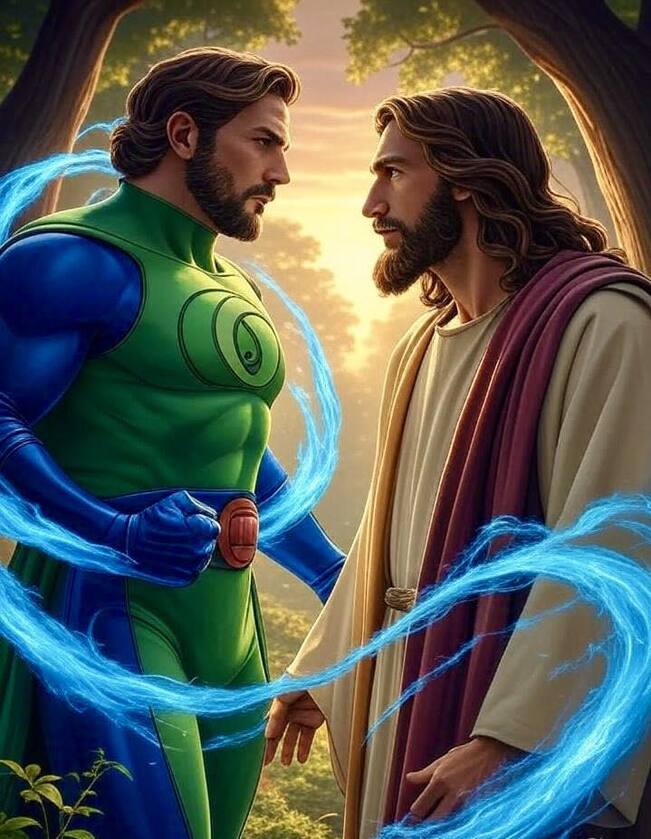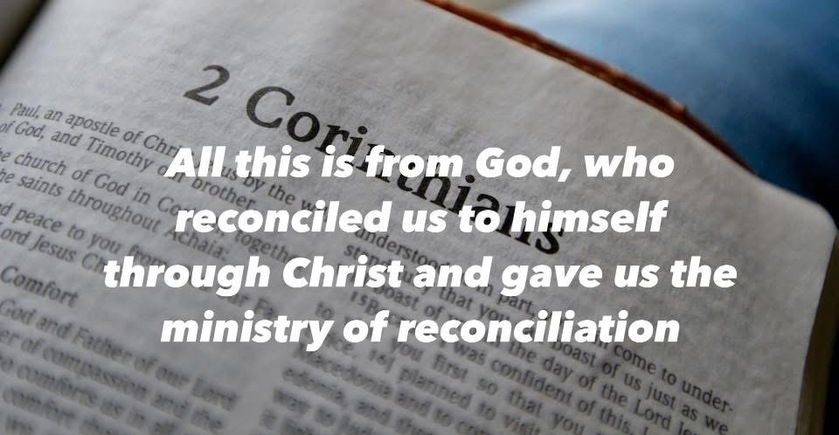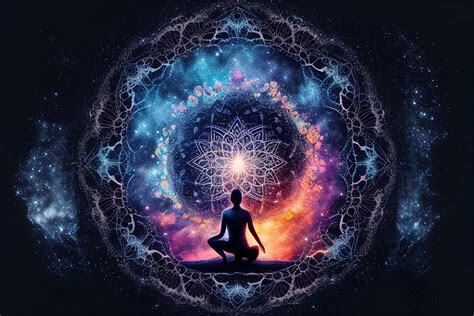Captain Planet vs. Creator’s Command: Biblical Wisdom on Worshiping God Over Gaia
Acts 14:15-18
"Men, why are you doing these things? We also are men, of like nature with you, and we bring you good news, that you should turn from these vain things to a living God, who made the heaven and the earth and the sea and all that is in them. In past generations he allowed all the nations to walk in their own ways. Yet he did not leave himself without witness, for he did good by giving you rains from heaven and fruitful seasons, satisfying your hearts with food and gladness." Even with these words they scarcely restrained the people from offering sacrifice to them.
In Acts 14, Paul and Barnabas are on their first missionary journey, spreading the gospel in the region of Lystra (modern-day Turkey). And they encountered animistic people, people serving the creature rather than the Creator. These people had become pantheistic; everything is their god. They worship nature without caring to understand the nature of He who created these things. The Lystrans’ error was failing to see the design and architecture behind the world’s beauty, much like modern minds that admire nature’s grandeur without probing its divine origins.
I think about these people and their beliefs, and while I can understand the beauty and grandeur of our earth and its wondrous nature, I can't understand how anyone can't see the "design and architecture" behind that creation. I can't understand why they can't want to understand it. And it also brings to my mind my children and one of their favorite Saturday morning cartoon shows.
In those days a very popular kids show was propagandizing our kids. I didn't realize it at the time but I couldn't help pick up on the common anti-capitalist sentiment embedded into every aspect of that programming. The show was "Captain Planet and the Planeteers” (1990–1996). This animated series, was created by media mogul Ted Turner and environmental activist Barbara Pyle, and it follows five diverse teens (Planeteers) gifted powerful rings by Gaia (their god), the sentient "Spirit of Earth," to combat eco-villains like polluters and greedy industrialists. While the show encouraged eco-stewardship it was short on providing alternative ideas for dealing with necessary production and consumption, beyond recycling trash. Looking at it now I can see that the show embeds themes that echo the Lystrans’ misplaced worship, blending animism, pantheism, and critiques of capitalism.
Paul on the other hand does offer understanding that gives the people meaningful insight into these themes. Paul’s plea emphasizes God’s "witness" in nature not as divine in and of itself but as pointing to a personal, living God who satisfies hearts (Acts 14:17). On the other hand in "Captain Planet," Gaia is portrayed as Mother Earth, a powerful, anthropomorphic entity who commands nature and empowers her heroes. She embodies pantheistic ideas, drawing from Greek mythology where Gaia is the earth goddess, and modern eco-spiritualities like Gaian religion, and witchcraft which see Earth as a sacred, self-regulating organism. These are people looking for simplicity in nature where there is no simplicity.
They are looking to nature for patterns by which they can box in their gods and manage their otherwise chaotic ways. They do this because their own lives are chaotic and uncertain. So, they want gods that will make created things behave in ways that provide safety and security for them. And if nothing else at least helps them make sense of life on planet earth.
The Planeteers summon Captain Planet by combining their individual demigod elemental powers (Earth, Fire, Wind, Water, Heart), evoking animistic reverence for nature’s forces. And they do battle against villains like Hoggish Greedly (overconsumption), Looten Plunder (corporate greed), and Duke Nukem (nuclear misuse) caricatures of industrialists and capitalists as eco-terrorists driven by profit over planet. Ultimately Ted Turner's show was mainly vilifying the little guy, workers in extractive industries as "sub-human" without addressing systemic complexities. This ties to my wonder at why people overlook creation’s "design." They can't see themselves as part of the creation and that includes their activities on planet earth.
Intelligent design arguments, are rooted in passages like Psalm 19:1...
"The heavens declare the glory of God"
...posit that nature’s complexity implies a purposeful Creator. Yet, shows like "Captain Planet" frame nature as self-divine (pantheistic Gaia) or a victim of human greed, sidestepping the biblical call to worship the Architect, not the architecture.
Today, "Captain Planet" exemplifies how leftist media subtly promotes pantheistic nature worship. Its reboot discussions (Netflix in 2025) and comic series revive these themes amid chaotic climate concerns. While encouraging eco-responsibility, it risks elevating creation to god-status, much like global movements blending environmentalism with spirituality (worshipping Earth as "Mother" in neopaganism or indigenous-inspired eco-faiths).
Believers must discern:
Appreciate creation’s beauty, take care within it and preserve our God-given resources, but direct our awe and veneration to God, teaching kids to see His handiwork rather than deify nature or demonize economies outright.
Romans 1:20
"For his invisible attributes, namely, his eternal power and divine nature, have been clearly perceived, ever since the creation of the world, in the things that have been made. So they are without excuse."
Reflection:
Where might we, like the Lystrans, worship "vain things" through eco-idolatry or unchecked anti-capitalism?
As stewards, we must appreciate creation’s beauty, preserve earth's God-given resources, and address real environmental issues; after all, God calls us to tend the garden (Genesis 2:15). And yet, when it comes to our spirituality and worship, we MUST ask ourselves, does it point to the Creator or stop at the creation?
Q: Why is it inherently wrong to focus our spirituality on the creation? Why direct our attention to the Creator?
A: Eco-idolatry excuses us from accountability to God. Treating climate activism as ultimate salvation, and unchecked anti-capitalism as virtue, it overlooks God’s sovereignty in His provision and revelation of our ultimate destiny in His new earth and kingdom come.
At the end of the day, the Bible unequivocally condemns focusing spirituality on creation rather than the Creator, labeling it as idolatry.
Romans 1:25 captures this starkly:
"They exchanged the truth about God for a lie and worshiped and served the creature rather than the Creator, who is blessed forever! Amen."
This exchange isn’t neutral; it suppresses God’s revelation, leading to folly where people "claiming to be wise…became fools" (Romans 1:22).
The result?
A downward spiral into moral and spiritual decay, as creation-worship excuses humanity from accountability to the divine lawgiver, fostering self-justification over repentance, (as Calvin noted, humans are "worshiping machines" ). John Calvin aptly described this in his Institutes of the Christian Religion, he comments that the human heart is "a perpetual factory of idols," endlessly crafting substitutes for God; whether ancient pagan deities or modern eco-gods like Gaia in "Captain Planet." It excuses us from God’s standards, allowing us to define morality on human or naturalistic terms, ignoring sin’s reality and the need for redemption. Captain Planet doesn't address human depravity except to remain hyper-focused on human activities that do damage to the Gaia deity.
So what does this mean for the Christian? Are we to ignore human depravity and its excessive mistreatment of God's creation?
Scripture doesn’t leave us in despair. Genesis 1:26-28 commissions humanity as stewards of creation, made in God’s image to "subdue" and "have dominion", not to exploit, but to cultivate responsibly (Genesis 2:15). Human depravity, inherited from the Fall (Genesis 3; Romans 3:23), twists this mandate into greed, pollution, and abuse, as seen in excessive mistreatment of resources. Christ’s redemption renews our hearts (Ezekiel 36:26), empowering believers to live righteously, including in environmental care. As Colossians 1:19-20 affirms, through Christ, God reconciles "all things" to Himself, encompassing creation’s restoration which groans today awaiting liberation from decay. For the Christian, this means we absolutely cannot ignore human depravity or its destructive impact on God’s creation. Recognizing human depravity doesn’t mean disengaging from stewardship.
Acknowledge personal and corporate sin in environmental harm, and give glory to God. These things aren't at odds with each other. Tend creation as an act of obedience and love for the Creator, not the created. This includes practical steps like conservation, sustainable living, and advocacy against injustice (pollution disproportionately affecting the poor, aligning with Micah 6:8’s call to justice).
While humans likely contribute to environmental issues in some respects, solutions must honor God’s sovereignty, avoiding fear-mongering that stems from depravity-denying pagan worldviews. In these things Christians must model redemptive stewardship, reflecting God’s character. Christians might support policies reducing waste or protecting habitats, but frame them biblically, as caring for God’s provision. Teach children that human greed damages creation, but Jesus transforms greedy hearts into generous stewards (Luke 12:15-21).
Unchecked, depravity leads to extremes on both sides of the divide, either exploitative indifference or nature-worship. The Christian path, on the other hand, navigates between stewarding faithfully as witnesses, to the Creator’s redemptive plan.
Prayer:
Gracious Creator, forgive our depraved hearts that suppress Your truth and mistreat Your world. Renew us through Christ, empowering us to confront sin without despair and steward creation as worship to You. Guard us from vain idols, and guide our actions toward Your kingdom’s restoration.
In Jesus’ Holy name, Amen.




















